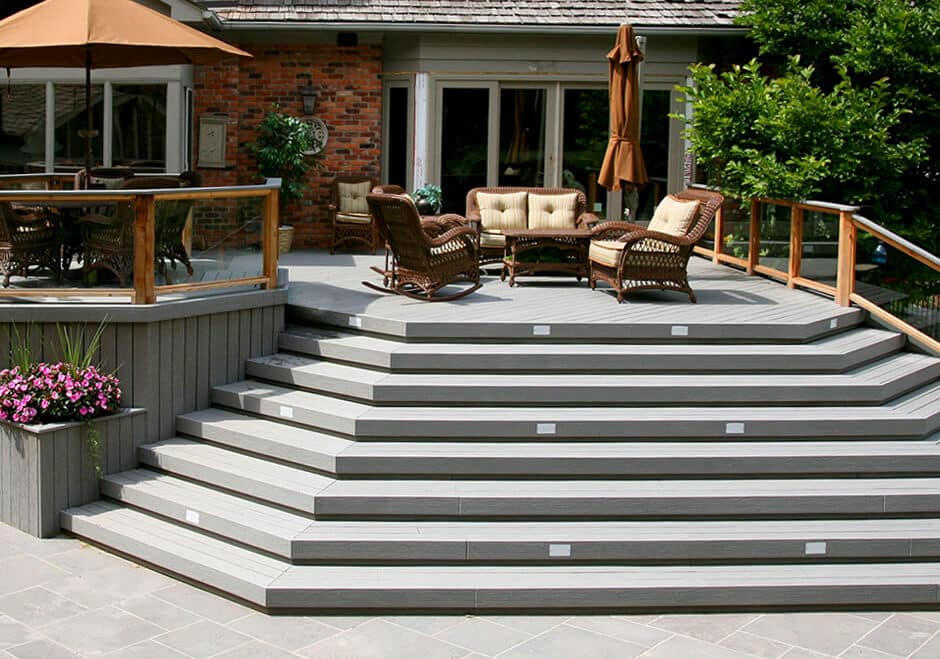
Building a deck can transform your outdoor space into a place to relax, host friends, or enjoy a family barbecue. But before you grab the tools, there’s one important question you need to answer: Do you need a permit to build a deck?
The answer isn’t always the same for everyone. It depends on the size, height, and even where you live. Not following the right rules can cost you money, time, and even hurt your home’s value.
This guide covers everything you need to know in simple, clear steps so you can build your deck without headaches later. Let’s get started.
Understanding Deck Building Permits
What Is a Deck Building Permit?
A deck building permi’t is an official approval you get from your local city, county, or town before you start building a deck. It shows that your project plans meet local safety rules, building codes, and zoning laws. Getting a permit isn’t just about paperwork — it’s about protecting you, your family, and your investment.
If you’re asking, “Do all decks need a permit?” — the quick answer is no. But most permanent, attached, or larger decks do.
Why Are Permits Necessary for Deck Construction?
Permits are crucial. They ensure your deck is structurally sound, safe to use, and won’t cause problems like water damage, electrical hazards, or neighbor disputes. Without a permi’t, your deck might fail inspection when you sell your home. Worse, you could face fines or even be forced to tear it down.
Many cities, from Houston to Atlanta to Chicago, report that decks built without perm-its often cause the most issues during home sales. So even if it feels like “just a few boards and nails,” skipping a permit can lead to big trouble later.
Quick Tip:
Before you start building, check with your local building department. Even if you think you won’t need a permi-, it’s better to ask and be sure.
When Is a Permit Required?
Not every deck needs a permit, but many do. Whether you need one depends on factors like the size, height, location, and features of your deck. Let’s break it down.
Size and Height Considerations
In most places, the bigger and taller your deck, the more likely you’ll need a permi-t.
For example:
- If your deck is more than 30 inches above the ground, most cities require a permit.
- If your deck is over 200 square feet, you’ll typically need approval.
Cities like Denver, Austin, and Miami follow these same rules, but always check your local building code. Even if your deck is small, if it’s raised off the ground, a permi-t might still be needed for safety reasons.
Small deck? You might not need a permit, but always verify. Don’t guess.
Attachment and Location Factors
Is your deck attached to your house? If yes, you almost always need a permi-t. Attached decks affect your home’s structure and safety, so cities want to ensure they’re built correctly.
Detached decks — like a small platform in your yard — may not need a permi-t if they’re low to the ground. But the location of your deck matters too. Watch for these rules:
- Setback requirements: Your deck must stay a certain distance from property lines.
- Easements: You can’t build over utility lines or drainage areas.
- Zoning laws: Different zones (residential, rural, commercial) have different rules.
Local example:
In Atlanta, detached decks under 30 inches high and under 120 square feet don’t need a permit, but attached ones almost always do.
Special Features and Additions
Adding anything extra to your deck can change the rules. If you plan to add:
- A roof or cover (like a pergola)
- Electrical wiring (for lights, fans, outlets)
- Plumbing (for outdoor sinks)
…then you’ll likely need additional permi-ts. Multi-level decks, rooftop decks, or decks with built-in hot tubs almost always need detailed permit approvals too. The more complicated your deck, the more likely you’ll need official permission.
Consequences of Building Without a Permit
Skipping a permi- might seem like a shortcut, but it often leads to bigger, costlier problems. Here’s why it’s not worth the risk.
Legal and Financial Implications
Building a deck without a permi-t can bring hefty fines. Cities like San Diego, Nashville, and Orlando issue penalties ranging from a few hundred to several thousand dollars — sometimes daily — until you fix the issue. Worse, you might be ordered to:
- Tear down your entire deck.
- Pay for emergency inspections.
- Rebuild it to meet code standards (at your own cost).
Even if nobody notices right away, the problem usually shows up when you try to refinance, get new insurance, or sell your home. Fixing it after the deck is built is far more expensive than doing it right from the start.
Quick Reality Check:
Unpermitted decks can sometimes reduce the resale value of your home — or even kill a sale completely.
Impact on Property Value and Insurance
If you sell your house with an unpermitted deck, you might have to lower your asking price. Some buyers walk away the moment they hear “unpermitted structure.” Others demand costly repairs or retroactive permi-ts before closing.
Insurance companies also don’t like unpermitted structures. If someone gets hurt on your deck, your homeowner’s policy might refuse to cover the injury if the deck wasn’t built legally.
Example from real life:
In Tampa, a homeowner had to tear down a $12,000 deck because it didn’t have a permi-t. Their insurance wouldn’t cover damages after a guest slipped and got hurt.
Bottom line:
A few hundred dollars for a permit is much cheaper — and smarter — than the risks of skipping it.
Navigating the Permit Process
Getting a permi-t might seem complicated, but it’s usually a straightforward checklist. Knowing the steps makes the process much easier — and you’ll avoid surprises later.
How to Apply for a Deck Permit
Most cities have a similar process for handling deck permits. Here’s a simple step-by-step breakdown:
- Visit or contact your local building department: Check their website or call them to get specific deck permit requirements for your area.
- Prepare your deck plans: You’ll need to submit drawings showing:
- The size and dimensions of your deck.
- How it attaches to your house (if it does).
- Details like railing height, stair design, and footings.
- The size and dimensions of your deck.
- Submit your application: Some cities allow online submissions, while others need you to visit in person.
- Pay the permi-t fee: Fees usually range between $100 and $500 depending on location and deck size. (In Raleigh, NC, the average deck permi-t costs about $200.)
- Schedule inspections: You’ll often need at least one inspection — sometimes two (framing and final).
Tip:
Always keep copies of everything — your permit, approved plans, and inspection reports.
Required Documentation and Plans
Cities need detailed information to approve your permi-t. Typical requirements include:
- Site plan: A drawing showing where your deck will be located on your property.
- Construction drawings: Details on beams, joists, posts, stairs, and handrails.
- Materials list: What you’ll use for framing, decking boards, fasteners, etc.
- Engineer’s approval (for large or complicated decks): Some areas require this if your deck is elevated or unusually large.
Local example:
In Seattle, decks over 8 feet above the ground need engineering approval.
Cost of Deck Building Permits
When budgeting for your new deck, don’t forget to factor in the permi-t costs. They’re usually small compared to the overall project, but they can vary based on location and deck size.
Typical Permit Fees
Most deck permits cost between $100 and $500. Some small towns charge as little as $50, while big cities could charge $700 or more.
Here’s a quick look at a few places:
- Charlotte, NC: Around $150 to $250 for a typical residential deck permi-t.
- Portland, OR: Around $250 to $400, depending on complexity.
- Phoenix, AZ: Starts at $200, but can be more for multi-level decks.
Important:
Permit fees usually increase if your deck is large, complex, or includes special features like electrical work or a covered roof.
Additional Costs to Consider
Beyond the basic permit fee, some other costs might pop up:
- Inspection fees: Some cities charge separately for inspections after construction.
- Plan review fees: Extra costs if your plans are detailed or complex.
- Re-inspection fees: If your deck fails inspection and needs a recheck.
- Engineering reports: Hiring an engineer could cost $500 to $1,500.
Quick Example:
In San Francisco, the plan review for larger decks can add $200 to $500 to the permit price.
Pro Tip:
Ask your local building office for a full breakdown of possible fees before you start. This helps you budget better and avoid surprises.
Deck Types and Permit Requirements
Different deck types may have different permit rules. Here’s how different decks affect the permit process.
Attached Decks
Attached decks are physically connected to your house. Because they affect your home’s structure, cities almost always require a permit for attached decks.
Key points:
- Must meet structural load standards.
- Needs secure connections to the house (like ledger boards with proper flashing).
- Often requires multiple inspections (foundation, framing, final).
Local example:
In Boston, any deck attached to a house requires a permit, no matter its size or height.
Detached Decks
A detached deck stands on its own, usually away from the house. If it’s low to the ground (under 30 inches) and small (under 120–200 square feet), you might not need a permit. But if it’s tall, large, or near property lines, you’ll likely need one.
Example:
In Dallas, detached decks under 200 square feet and less than 30 inches high usually don’t need a permit — but check setbacks!
Elevated and Multi-Level Decks
Any deck more than 30 inches off the ground almost always needs a permit — and stricter rules apply. Multi-level decks are even more regulated.
Fun Fact:
In Denver, decks over 8 feet must meet specific wind and snow load requirements.
Bottom Line:
The bigger, taller, and more complex your deck, the more approvals you’ll need.
Local Regulations and Variations
Building codes and permit rules can differ from one city — or even one neighborhood — to another. Always check your local guidelines before picking up a hammer.
How Rules Change Across Cities
Some areas are stricter than others. Here’s a quick look:
- Los Angeles, CA: Any deck over 30 inches above grade needs a permit.
- Austin, TX: Decks under 200 square feet and under 30 inches high usually don’t need a permit.






